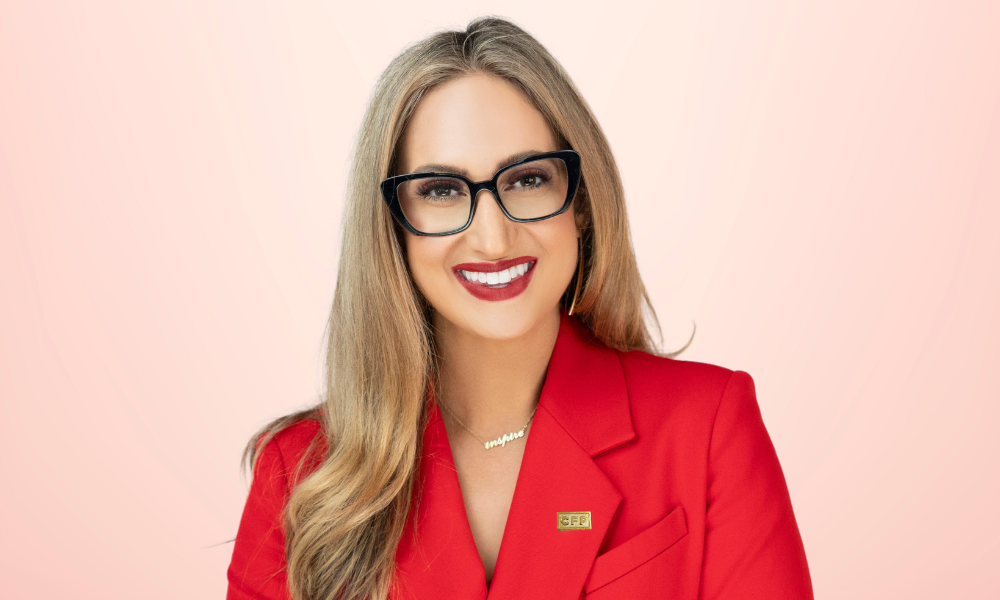

Professional designations can be a powerful career advancement tool for women financial advisors, according to a new study from the FUSE Research Network and The American College of Financial Services.
Clients seek out advisors they can trust to be professional, competent, and effective. They want to know that their financial advisor is not only experienced but also highly knowledgeable in the areas that matter most to them.
Professional designations, such as The College’s upcoming Tax Planning Certified Professional™ (TPCP™) or the highly regarded Retirement Income Certified Professional® (RICP®) demonstrate that advisors have specialized expertise in key areas, which can increase client trust.
Back in 2014, a CFP Board Women’s Initiative (WIN) study noted that 91 percent of financial professionals felt men had an edge over women in becoming successful planners, with 69 percent of CFP® professionals believing men were more likely than women to have what it takes to be great financial planners.
Designations can help women overcome such attitudes by enabling them to position themselves as authoritative and trustworthy professionals. The Designation Outcomes study from FUSE and The American College of Financial Services found that women with multiple designations experience greater improvements in referral and close rates –both key indicators of client trust – than their male counterparts.
Referrals – and even more so, quality referrals – are the lifeblood of a successful financial advisory practice, and clients are more likely to recommend advisors whom they perceive as experts. Designations can give clients greater confidence in their advisors’ expertise; many advisors with designations report that they are viewed less as salespeople and more as true financial professionals by their clients – and this can drive referrals.
For women, in particular, designations significantly enhance referral rates. According to the Designation Outcomes study, women advisors with multiple designations saw their referral rates increase by 61 percent, significantly higher than the corresponding – and still sizable – increase achieved by men with multiple designations (42 percent). This illustrates how designations can signal to both current and prospective clients that the women who hold them are equipped to handle complex financial needs, thereby making them more referable.
Designations can also help women build relationships with other influential professionals, such as attorneys and CPAs, who are more likely to refer clients to financial professionals they believe have the expertise to handle specialized areas like tax-informed planning or estate planning. With professional designations, women advisors can position themselves as the go-to professionals for complex client needs and further enhance their referral networks.
Professional designations can also improve the rate at which advisors convert prospects into clients. Designations give advisors the tools and knowledge to provide more comprehensive, personalized financial advice and a broader range of services, which makes for a more compelling unique value proposition to would-be clients and can drive greater conversion rates. This effect is greater for women – according to the Designation Outcomes study. Women advisors with multiple designations saw their close rates increase by 18 percent since their most recent designation – a better improvement than that achieved by their male counterparts.
Advisors with specialist designations also report that their ability to address a wider range of client goals – such as retirement planning, charitable giving, and special needs planning – leads to more meaningful client interactions, which can enhance client satisfaction and retention. By offering a deeper level of service and more meaningful interactions, advisors with designations can build “stickier” client relationships, making clients less likely to seek out alternative advisors and boosting retention rates.
For women financial advisors, professional designations are not just credentials to add after their names. Designations are vital tools that can accelerate success. From improving client trust and increasing referrals to enhancing retention and overall satisfaction, professional designations are an investment in long-term career growth.
In the Advisors’ Perceptions of Success Study conducted by the American College Center for Women in Financial Services, 43 percent of women advisors cited “additional formal education or credentialing” among the most useful types of support they could receive (second only to “access to high-net-worth clients” at 50 percent).
Designations can also enhance women advisors’ career satisfaction. According to a CFP Board survey, more than half of women CFP® professionals indicated strong career satisfaction, compared to 35 percent of other women advisors and 42 percent of male CFP® professionals.
As the financial industry evolves, women advisors with multiple designations are well positioned to stand out and build thriving, referral-driven practices. President and founder of OBN Wealth Advisors Terrell Dinkins, MBA, ChFC®, RICP®, a multi-designee and member of The College’s FinServe Network, explains her decision to earn The College’s Chartered Financial Consultant® (ChFC®) designation.
“I decided to obtain the ChFC® because it’s expansive and helps you in planning for your client’s life,” she said. “It has also helped me as a business owner: in that capacity, you want to grow your revenues, and having this designation has also helped me do that.”
Lindsey Lewis, MBA, CFP®, ChFC® is the managing director and chair, The American College Center for Women in Financial Services.

It's a showdown for the ages as wealth managers assess its impact on client portfolios.

CEO Ritik Malhotra is leveraging Savvy Wealth's Fidelity partnership in offers to Commonwealth advisors, alongside “Acquisition Relief Boxes” filled with cookies, brownies, and aspirin.

Fraud losses among Americans 60 and older surged 43 percent in 2024, led by investment schemes involving crypto and social manipulation.

The alternatives giant's new unit, led by a 17-year veteran, will tap into four areas worth an estimated $60 trillion.

"It's like a soap opera," says one senior industry executive.
RIAs face rising regulatory pressure in 2025. Forward-looking firms are responding with embedded technology, not more paperwork.
As inheritances are set to reshape client portfolios and next-gen heirs demand digital-first experiences, firms are retooling their wealth tech stacks and succession models in real time.
